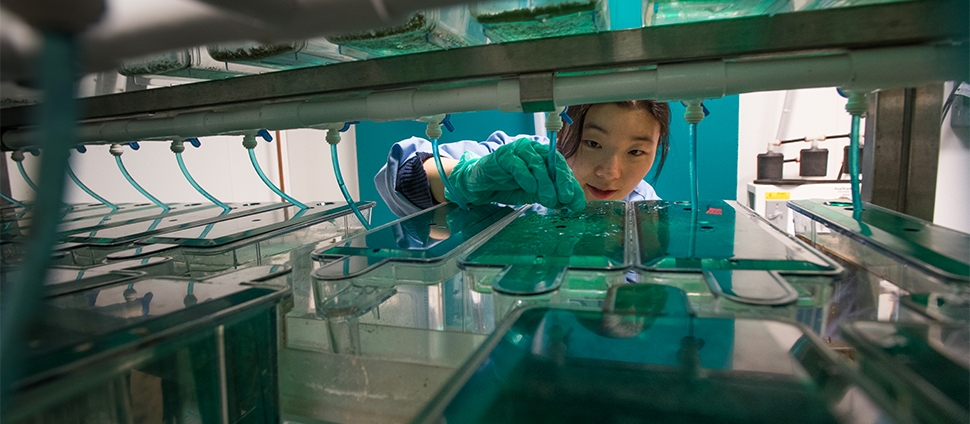Document Type
Article
Publication Date
5-4-2012
Publication Title
BMC Biology
Abstract
Background: The Deepwater Horizon disaster was the largest marine oil spill in history, and total vertical exposure of oil to the water column suggests it could impact an enormous diversity of ecosystems. The most vulnerable organisms are those encountering these pollutants during their early life stages. Water-soluble components of crude oil and specific polycyclic aromatic hydrocarbons have been shown to cause defects in cardiovascular and craniofacial development in a variety of teleost species, but the developmental origins of these defects have yet to be determined. We have adopted zebrafish, Danio rerio, as a model to test whether water accumulated fractions (WAF) of the Deepwater Horizon oil could impact specific embryonic developmental processes. While not a native species to the Gulf waters, the developmental biology of zebrafish has been well characterized and makes it a powerful model system to reveal the cellular and molecular mechanisms behind Macondo crude toxicity.
Results: WAF of Macondo crude oil sampled during the oil spill was used to treat zebrafish throughout embryonic and larval development. Our results indicate that the Macondo crude oil causes a variety of significant defects in zebrafish embryogenesis, but these defects have specific developmental origins. WAF treatments caused defects in craniofacial development and circulatory function similar to previous reports, but we extend these results to show they are likely derived from an earlier defect in neural crest cell development. Moreover, we demonstrate that exposure to WAFs causes a variety of novel deformations in specific developmental processes, including programmed cell death, locomotor behavior, sensory and motor axon pathfinding, somitogenesis and muscle patterning. Interestingly, the severity of cell death and muscle phenotypes decreased over several months of repeated analysis, which was correlated with a rapid drop-off in the aromatic and alkane hydrocarbon components of the oil.
Conclusions: Whether these teratogenic effects are unique to the oil from the Deepwater Horizon oil spill or generalizable for most crude oil types remains to be determined. This work establishes a model for further investigation into the molecular mechanisms behind crude oil mediated deformations. In addition, due to the high conservation of genetic and cellular processes between zebrafish and other vertebrates, our work also provides a platform for more focused assessment of the impact that the Deepwater Horizon oil spill has had on the early life stages of native fish species in the Gulf of Mexico and the Atlantic Ocean.
Keywords
Cardiovascular, Cartilage, Crude oil, Deepwater horizon, Embryonic development, Muscle, Neural crest, Peripheral nervous system, Somitogenesis, Zebrafish
Volume
10
DOI
10.1186/1741-7007-10-40
Rights
© 2012 de Soysa et al; licensee BioMed Central Ltd.
Version
Version of Record
Recommended Citation
de Soysa, T. Yvanka; Ulrich, Allison; Friedrich, Timo; Pite, Danielle; Compton, Shannon L.; Ok, Deborah; Bernardos, Rebecca L.; Downes, Gerald B.; Hsieh, Shizuka; Stein, Rachael; Lagdameo, M. Caterina; Halvorsen, Katherine; Kesich, Lydia Rose; and Barresi, Michael J.F., "Macondo Crude Oil from the Deepwater Horizon Oil Spill Disrupts Specific Developmental Processes During Zebrafish Embryogenesis" (2012). Biological Sciences: Faculty Publications, Smith College, Northampton, MA.
https://scholarworks.smith.edu/bio_facpubs/199


